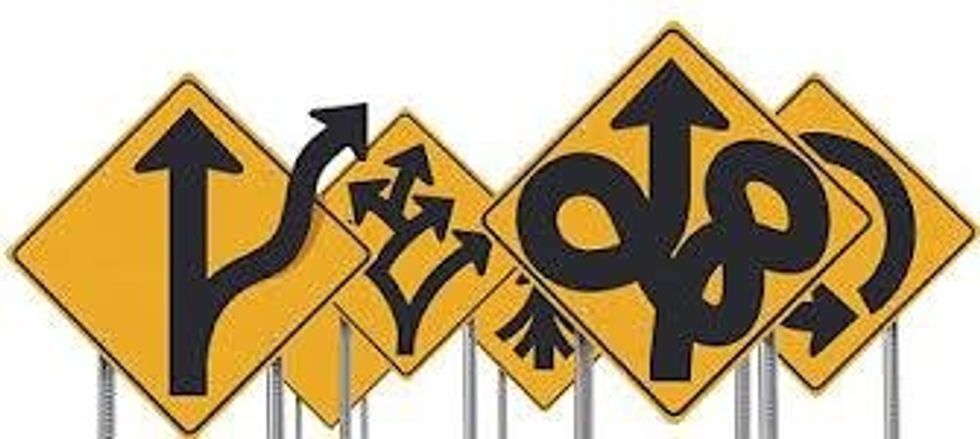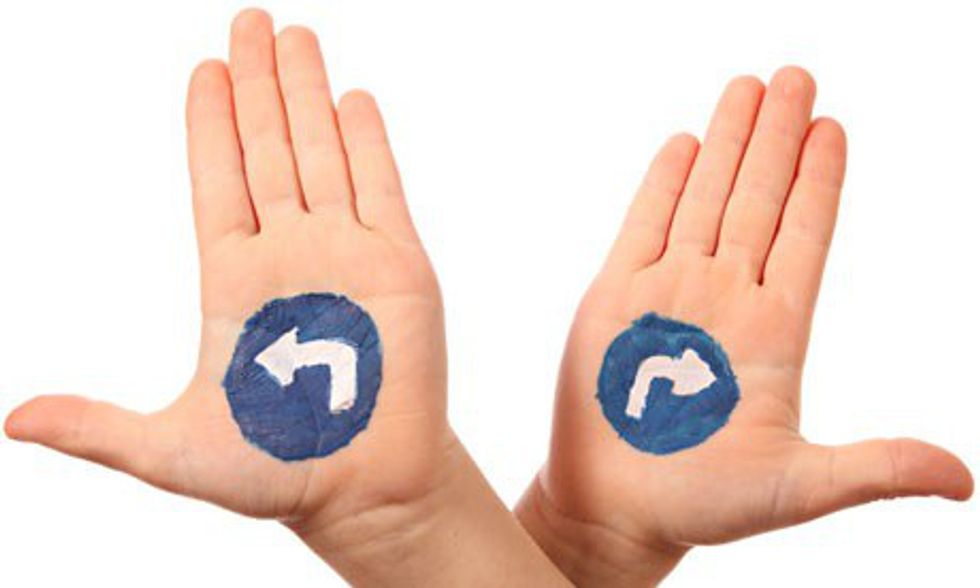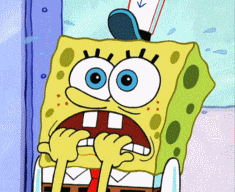I remember during a driving hour a couple of years ago, I almost endangered both myself and my driving instructor. We were coming up to one of the busier intersections in my town, and he told me to go right after the stop light. I nodded and started turning the wheel once the light turned green. "Stop!" he said to me, his voice elevated and tinged with panic. "Didn't I tell you to go right?" I was confused. I thought I had turned right and I didn't understand the problem for a second. Then I realized what I had done and apologized; it was all my fault.
We didn't get into an accident, but the turn I took was riskier than he wanted me to do as an inexperienced driver. I told him what had happened: I didn't know the difference between my lefts and rights. I'm sure he thought I was lying to cover up the fact that I made a mistake, but in fact I thought I was doing exactly what he had told me to do. I wanted to tell him something along the lines of Roxane Gay's words, "I am not the idiot you think I am or at least, I am not an idiot for the reasons you think." The rest of the car ride was full of uncomfortable silence until I dropped myself off at my house, and he took the car back to the driving school. I don't remember ever driving with that instructor again.
That was not the first nor was it the last time that that issue has occurred, though usually the consequences aren't as severe. Usually I'm not a risk to other people when I make this mistake, usually it just involves temporary embarrassment for me, if anything. My brain does not work the way other people's brains seem to when it comes to lefts and rights, and my father has the same issue. One side is not always left and the other is not always right. Most of the time in my head there is neither, and if I have to decide which side is left, it is a shot in the dark. If someone were to ask me to point to which side was left without making the "L" with my hands, the answer would be correct some of the time. But the best I can do is guess, and in the heat of the moment I'm often wrong.
Aside from my fear of failing my road test again, this is the other half of the reason why I am hesitant to go for my license again. I have a good sense of direction and can rely on a mental map, but if a GPS or a passenger were to tell me to take a "right turn" on the road, I would need a visual aid to instruct me where to go. I'm nervous to subject others to this minor debilitation of mine.
There is little research on this subject. A BuzzFeed study suggests that anywhere between 19 and 26 percent of people suffer (I use this term loosely because it's not a hugely impactful hindrance) from this same problem. So somewhere around one-fifth of the population needs to take a moment to figure out which side is left and which side is right. Basically, determining the difference between left and right is more complicated than just determining the difference between "up" and "down," and it is not an effect of inferior intelligence. It's an extra step that the brain takes to differentiate the two, and since neither side holds any weight over the other, some brains deem that information less important.
To people going into a field like I hope to, this issue will likely be insignificant to my work. However, people working in fields where this confusion could be detrimental to others, such as medical fields, could suffer more consequences. Surgeons could perform the extraction or procedure on the body part on the wrong side, such as removing the kidney on the left side if it was supposed to be the right one. The mirroring of sides as a medical professional looks directly at a patient can also contribute to further confusion. Just thinking about that is making me anxious, good Lord.
If you're interested, this link will bring you to a test to determine how you compare to others in differentiating your lefts and rights.
"Right" on, friends!























